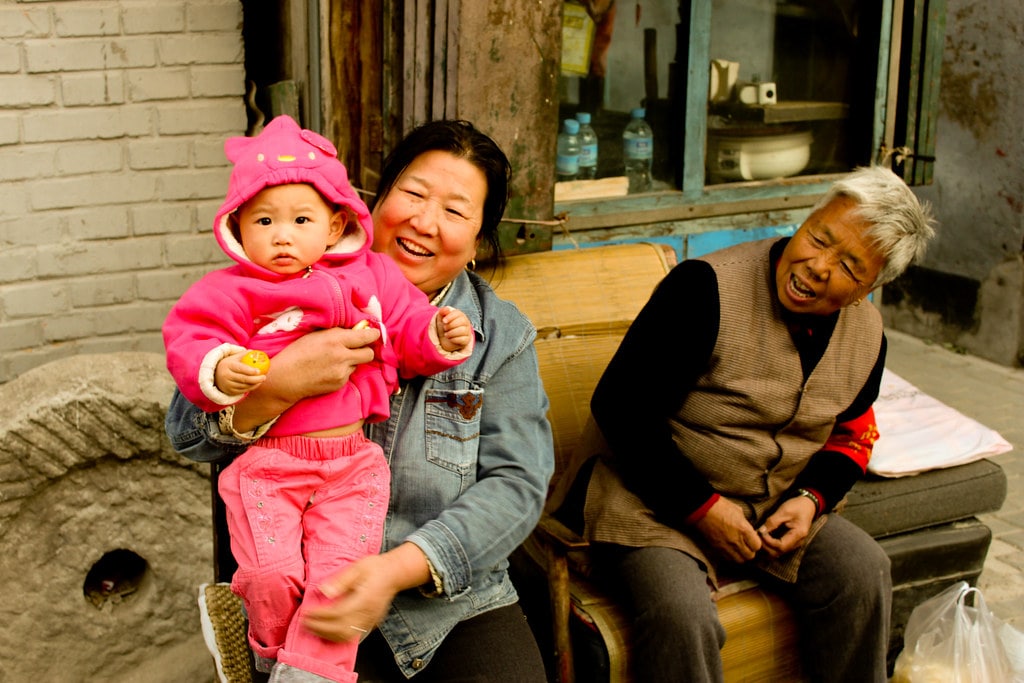- New Arrivals
Fiction
- Historical FictionCrime & ThrillersMysteryScience-FictionFantasyPoetryRomanceChildren’s BooksYoung Adult
- Biographies & MemoirsHistoryCurrent AffairsTech & ScienceBusinessSelf-DevelopmentTravelThe ArtsFood & WineReligion & SpiritualitySportsHumor
Children’s Books
Lists
Blog
Gift Cards
My Lists
Games
The co-op bookstore for avid readers
How to Interview Your Family to Capture the Stories that Will Bridge Generations
In some ways, we know more than ever about our families. We can discover our origins from DNA kits and record the moments of our lives in neatly digitized archives. Yet, the oral tradition which has kept stories alive for generations seems to be disappearing for many families. Inspired by her own regrets after her mother died, anthropologist Elizabeth Keating has developed a structured guide to the process of interviewing your family members in order to capture the stories (and secrets!) of their lives for future generations. Read on to learn more about her approach in this excerpt of The Essential Questions: Interview Your Family to Uncover Stories and Bridge Generations.
Get 15% off The Essential Questions through July 31 — plus another 10% when you take a free trial of Tertulia membership. Use discount code FAMILY at check-out.
From THE ESSENTIAL QUESTIONS: Interview Your Family to Uncover Stories and Bridge Generations by Elizabeth Keating, Ph.D, published by TarcherPerigee, an imprint of Penguin Publishing Group, a division of Penguin Random House, LLC. Copyright © Elizabeth Keating 2022
When I started researching what people knew about their older family members, I found out that people were missing essential clues to their lives. I was struck by what people didn’t know or the secrets they found out only after their parent or grandparent had died. Often, the secrets weren’t even intentional. Maybe your grandfather thought everyone knew that his mother had died when he was four years old. These were more secrets of omission than secrets buried in hearts. But if the secrets are only discovered after your parents’ or grandparents’ deaths, questions can emerge when it’s too late to get answers. You might feel regret that you couldn’t show admiration for your parent’s and grandparent’s courage, or new knowledge about your elders might have given you strength for past challenges. Personal family stories have more power to move us than does statistical data about economic turbulence, divorce, inequality, or disability. But sometimes the stories remain secrets.
One student, Sloan, said of their grandfather, “I’ve known him all of my life, but I didn’t know half of the stories he mentioned. He is an avid storyteller at family gatherings, but when prompted with questions, he really started to remember things that were very important to him and reflected aspects of himself that he didn’t realize were there.”
As people age to a grandparently patina, we have a hard time seeing past their physical appearance. The questions in this book are designed to help you discover their youthful spirit, which is alive and well. Though an abundance of youthful optimism and daring might be the younger generation’s privilege at this point, asking your parent or grandparent to remember a special memory or two from when they were a child can get at some of your shared experiences of life. Given that one in nine people over the age of sixty-five experiences some form of cognitive impairment, there’s no time to lose.
Your interview is an exploration of how place, time, memory, people, identity, socialization, and beliefs intersected in your parents’ or grandparents’ lives while they were seeking what Kenneth Burke called equipment for living. Despite characterizations in the media, or perhaps because the media doesn’t often talk about elderly people, you may be surprised to hear your parent or grandparent speak about the changing world with grace and hope. I’ve heard grandparents express support for young people, saying, “It’s their time now.”
I wish I could have included more of the wonderful words of people I interviewed in this book. I’ll always treasure their stories and be grateful for how they shared parts of their lives with me. When you seize the opportunity to interview older family members, you’ll not only learn more about their lives and who they are as people but you’ll create a chain of knowledge to pass down to future generations. As my former student William wrote, “Thank you for this assignment. I have not said that very often over the course of my college career. It has been more meaningful than I could have imagined when I started. I am lucky enough to have 4 living grandparents, and this inspired me to record some of their thoughts and lives so my family can have them long after they are gone.”
If you’re anything like me and my students, you’ll be thrilled to hear more about your family in your parent’s or grandparent’s own words. You’ll be surprised at the connection you can make across generations.
Want to keep reading? Get 15% off The Essential Questions through July 31 — plus another 10% when you take a free trial of Tertulia membership. Use discount code FAMILY at check-out.

